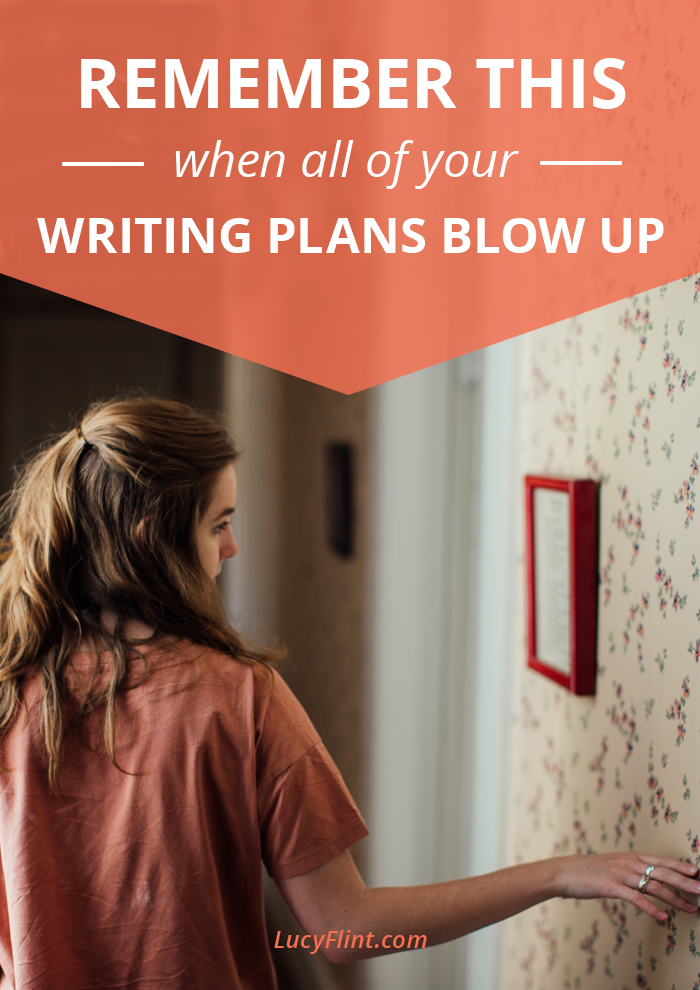When You Doubt the Value of a Lighthearted Book in a Tough World, Remember This
/Well, we're coming to the end of this gorgeous month of Reading Recess.
I don't know about you, but it has been SO GOOD for me to slow down, to focus on reading, and to remember why we read.
To set up good, nurturing structure around the reading habit (in the mornings! in a nook!), but also to remember why we have permission to do this amazing thing: falling into novels and reading, reading, reading.
We have that permission, because we're the makers of this art as well. We have to keep experiencing novels as readers, to remember, again and again, everything that they can do.
Because books can be the loveliest of vacations, the sweetest escapes.
Because books connect people: they link hearts with hearts, and remind us that we're not alone.
And sometimes, they do both of these things at once.
In my reading history, there is one moment that stands out above all others.
One moment when a light-hearted, even "silly," book gave an amazing gift to me, my parents, and someone else we didn't know.
In the midst of fear, heartache, tension, physical pain, and hope, there was a story.
I've talked about it before on the blog, when the memory was especially fresh. (I can't beat that version of the story, so I'm just gonna reprint it below.)
But seriously: for amazing moments with a novel, nothing in my life beats this:
We were in my mom's hospital room.
Waiting with her as they tweaked her pain medication, waiting for her to recover just enough from the surgery to go home. We were looking out at the amazing view from the seventeenth floor. Letting her rest, grabbing coffee from the lobby, keeping each other company.
And then: we were reading out loud.
My family has always read out loud to one another: it's something my parents did for us when we were kids, and none of us got around to outgrowing it.
So my mom packed a lighthearted novel for her hospital stay, and Dad and I read it out loud.
And something funny happened.
Instead of being overwhelmingly conscious of I.V. cords and hospital gowns, the smells of antiseptic, the sounds of the equipment in the room (I never knew hospital beds were so loud)—
Instead of all our worries about the surgery itself, and the outcome, and what the rest of recovery would be like, and if any other treatment was needed—
We all teleported.
To 1930s England. To chauffeurs in uniform, to having tea and lemonade on the lawn, to entertaining the vicar.
To frivolous women and pompous young men and imperious great-aunts. To thwarted love and silly mix-ups and endangered inheritances.
It was one of those comedy-of-manners kinds of books, trivial and subtle and funny.
The only thing I had to focus on was reading the very next sentence. Everything else faded away. Mom listened and rested. Dad and I wrapped ourselves up in the story.
And at one point I looked up to see my mom's roommate standing there, listening to me read.
She was holding onto her I.V. pole, with a feeding tube snaking into her nose, but she was with us in the 1930s, standing there in England, just for a little while.
(She told us—in a beautiful accent that none of us could quite place—that she and her husband had been listening to us for a while, that it was lovely to overhear someone reading, instead of the noise of the TV. "There's a TV in here?" I said later, surprised. We had never even noticed.)
In other words—I tell this emphatically to the doubting voice in my head—in other words, books are still important.
Even when your family gets all shaken around and can't figure out what normal is for a while.
Even in a land of diagnoses and tests and results and lab reports and waiting, waiting, waiting.
After all, anything that can make two women forget—even for an instant—that they are in a lot of pain; anything that can move a group of people over a continent and back about eight decades; heck, anything that can keep me from realizing I'm in a hospital—
Well. That's a very powerful force.
Whether the story reminds you of green lawns and sparkling lemonade, or whether it's populated with aristocratic assassins and monocled crime fighters [like the one I'm writing!]:
Stories are important.
And maybe there is no such thing as too silly, when even the silly stories can remind us who we are.
In reading news: I finished Emmy and the Incredible Shrinking Rat! SO much fun. And so I've started my final novel for this four-in-four challenge.
It is in the favorite-of-mine genre of British mystery. Thought I'd save the easiest for last! Somehow, I can never, ever read enough British mysteries.
This one's a recommendation from my mom (who is totally healed and healthy now, by the way!). It's called Bellfield Hall, Or, The Deductions of Miss Dido Kent, written by Anna Dean.
Wahoo!! I'm super excited to dive in!!
How's your reading going? Can you spend the last week of July splashing around in some fun-for-you (or dare I suggest it, even silly) novel??
Maybe in a lovely nest or nook? Maybe while eating something nourishing and delicious?
(Or a crisp gin and tonic: also fine with me. Heck, have two. It's been a tough summer.)
Wherever you are, whatever's going on: Save some time for yourself and a splendid book.
Re-anchor yourself in the worlds of what you're reading. Switch your perspective for a while. Nourish yourself with words.
It's vital.
Happy reading to you, my friends!













